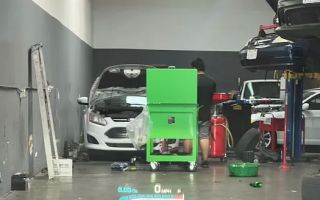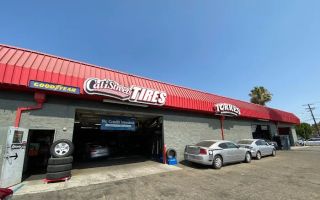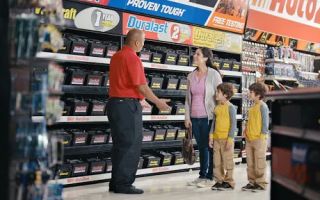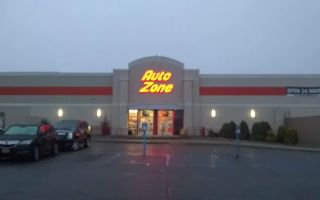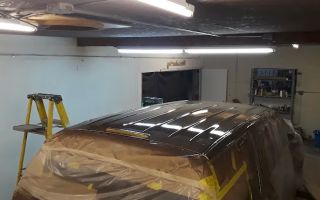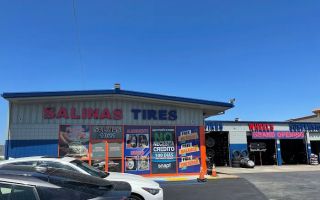What Causes Tire Blowouts in Trucks and Heavy Vehicles?
As a truck driver, I’ve experienced my fair share of stressful situations on the road, and nothing quite compares to the feeling of a sudden tire blowout. The first time it happened, I was driving down a busy highway when I heard a loud pop, followed by the unmistakable feeling of my truck swerving. I immediately knew that something had gone terribly wrong. Fortunately, I was able to steer my truck to the shoulder of the road safely, but it left me with a lot of questions about what caused the tire to blow out in the first place. Since then, I’ve spent quite a bit of time learning about the causes of tire blowouts in trucks and heavy vehicles, and I want to share that knowledge with you so that you can avoid the same stressful situation and keep your vehicle in good condition.
Over the years, I’ve learned that there are several factors that contribute to tire blowouts in heavy vehicles, and understanding these causes is key to preventing them. Tires are a critical part of any vehicle, but in trucks and heavy vehicles, they play an even larger role in ensuring the vehicle stays on the road safely. With the added weight and constant pressure these vehicles experience, tires are subjected to a lot more stress than those on regular passenger vehicles. Let’s take a closer look at what I discovered about the main causes of tire blowouts in trucks.

MR. TIRE INC.
2078 New York Ave, Huntington Station, NY 11746, USA
1. Overloading the Vehicle
One of the most common causes of tire blowouts in trucks is overloading. This is something I’ve seen happen more than once in my time on the road. When a truck is carrying more weight than it’s designed to handle, the tires are put under tremendous strain. Tires are engineered to support a specific weight, and when this weight is exceeded, the extra pressure can cause the tire to overheat and eventually fail. I’ve encountered trucks that were clearly overloaded, and in some cases, the result was a blown tire that could have been avoided if the load had been more carefully managed.

MR. TIRE INC.
2078 New York Ave, Huntington Station, NY 11746, USA
1.1 How Overloading Affects the Tires
When a truck is overloaded, the weight distribution becomes uneven, which causes some tires to bear more weight than others. This can lead to uneven tire wear, excessive heat buildup, and eventually, tire failure. The more weight a tire carries, the harder it has to work to support that load, and this can lead to the internal components of the tire weakening over time. In my experience, trucks that routinely carry heavy loads are at a higher risk of tire blowouts, especially if the weight distribution is not properly balanced.
2. Underinflated Tires
Another major factor in tire blowouts is underinflated tires. This is something I’ve learned to be extremely cautious about, as driving on underinflated tires can significantly increase the risk of a blowout. When a tire is not inflated to the proper pressure, it can’t perform as efficiently, and the internal components of the tire are subjected to greater stress. This increases the likelihood of the tire overheating, which can lead to a catastrophic failure.
2.1 The Importance of Proper Tire Inflation
Maintaining the correct tire pressure is critical for the overall safety and performance of the vehicle. I now make it a point to check the tire pressure regularly, especially before long trips. Underinflated tires create more friction with the road, causing excessive heat buildup. This heat can cause the rubber to weaken and ultimately result in a blowout. On the flip side, overinflated tires can also cause issues by making the tire more prone to punctures and other forms of damage.
2.2 Monitoring Tire Pressure
To avoid underinflated tires, it’s important to check the tire pressure at least once a week and before any long trip. Many modern trucks have onboard tire pressure monitoring systems (TPMS), which can alert you when a tire is underinflated. However, it’s still a good idea to manually check the tire pressure with a gauge to ensure everything is within the recommended range. This simple step can save you from a blowout and the costly repairs that often follow.
3. Poor Tire Maintenance
Tire blowouts can also be caused by poor maintenance, which is something I’ve learned to take seriously. Over time, tires naturally wear down, and if they’re not properly maintained, they become more vulnerable to damage. I’ve seen it happen where a tire that was showing signs of wear wasn’t replaced in time, leading to a dangerous blowout on the road.
3.1 Tread Wear and Tire Inspection
One of the most important aspects of tire maintenance is monitoring tread wear. Worn-out tires with minimal tread are less effective at gripping the road, which can increase the likelihood of a blowout, especially in wet or icy conditions. I’ve learned that regular tire inspections are essential for checking for signs of damage, such as cuts, cracks, or bulges. If a tire is showing any of these signs, it’s best to replace it immediately to avoid the risk of a blowout.
3.2 Tire Rotation
Another crucial part of tire maintenance is rotating the tires regularly. I now make it a point to have my tires rotated every 6,000 to 8,000 miles, as this helps ensure that the wear is even across all tires. Uneven wear can lead to some tires becoming more prone to failure. By rotating the tires, I not only extend their lifespan but also reduce the risk of tire blowouts due to uneven pressure on specific tires.
4. Tire Age and Quality
The age and quality of a tire are also significant factors in the likelihood of a blowout. Tires degrade over time, even if they’re not being used. I’ve learned that tires older than six years, regardless of their appearance, are more likely to suffer from internal damage that could lead to a blowout. Additionally, tires that are of lower quality or have manufacturing defects may not perform as well as those from reputable brands, increasing the risk of a tire failure.
4.1 Replacing Old Tires
I always keep track of the age of my tires and make sure to replace them before they reach the six-year mark. Even if the tires don’t appear to have any visible damage, their rubber composition can weaken over time, making them more susceptible to blowouts. Tires that have been exposed to extreme conditions—like excessive heat or direct sunlight—are also more prone to failure, so keeping them in good condition is critical.
5. Road Hazards and External Factors
Sometimes, tire blowouts are caused by external factors that are out of our control, such as road hazards or environmental conditions. I’ve had a few close calls where road debris or sharp objects on the road caused my tires to puncture or burst. Other factors, like potholes, can also lead to sudden tire failure if they’re hit at high speeds.
5.1 Avoiding Road Hazards
One of the most important things I’ve learned is to always be aware of the road ahead. Avoiding road hazards like potholes, debris, or sharp objects is crucial in preventing tire blowouts. Whenever possible, I try to drive at a safe speed and keep an eye out for anything that could damage my tires. If I see a pothole or piece of debris on the road, I slow down and maneuver around it safely to minimize the risk of tire damage.
5.2 Driving Conditions
Weather conditions can also contribute to tire blowouts. Hot weather, in particular, can cause tires to overheat, increasing the risk of a blowout. I’ve noticed that during the summer months, I have to be extra cautious, especially if I’m driving on rough or poorly maintained roads. Keeping my tires properly inflated and regularly checking for any wear or damage has been essential in these conditions.
6. When to Seek Professional Help
Despite all the precautions I’ve taken, there are still situations where tire blowouts happen unexpectedly. In these cases, seeking professional help is essential. Towing services can be incredibly helpful when dealing with tire blowouts, especially for heavy vehicles. Companies like Rescue & Towing offer emergency towing and tire replacement services, ensuring that you’re never left stranded after a blowout. Whether you need a quick tire change on the side of the road or a full recovery to a nearby garage, professional services can get you back on the road safely.
If you ever experience a tire blowout or suspect that your tires are in danger of failure, it’s important to contact a reliable towing service. The sooner you address the issue, the safer you’ll be on the road.


